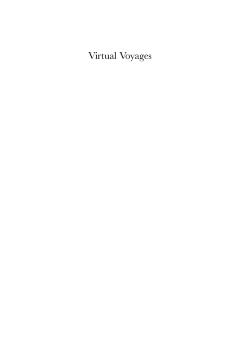
Additional Information
Book Details
Abstract
'Virtual Voyages' is a fascinating account of the European discovery of the elusive 'great south land' told through the literature of 'imaginary voyages'. Written at the height of the era of European maritime exploration, these bizarre and captivating tales, with their wildly imaginative visions of antipodean inversion and strangeness, reveal a hidden history of attitudes to colonization. By exposing the relationship between myth and reality in the antipodes, this book casts new light on the power of fiction to influence history.
'Virtual Voyages' is a fascinating account of the European discovery of the elusive 'great south land' told through the literature of 'imaginary voyages'. Written at the height of the era of European maritime exploration, these bizarre and captivating tales, with their wildly imaginative visions of antipodean inversion and strangeness, reveal a hidden history of attitudes to colonization. By exposing the relationship between myth and reality in the antipodes, this book casts new light on the power of fiction to influence history.
In the post-colonial studies field, books about travel writing and empire have tended to focus on the high period of nineteenth-century imperialism and on the colonial settings of Africa and India. This book offers a fresh perspective by focussing on the eighteenth century, and referring to the geographical region of Australia and the Pacific, which has had far less attention. The book also breaks new ground by being the first to approach the genre of the imaginary voyage from a post-colonial perspective.
In addition to the new insights into European colonialism that it offers, the book illustrates many broader themes in eighteenth-century history and thought. These include connections between the rise of science and modern imperialism, the development of narrative history and fiction and the influence of romanticism, the evolution of the early novel in Britain and France, and the role of mythology in the development of national identity.
'This excellent study, illustrated with a wealth of detail, shows how generations of Europeans saw this distant world, transplanting their fears and desires in equal parts and shaping the space in ways which continue to mark it even into the present.' —Gareth Griffits, Winthrop Professor of English and Cultural Studies, The University of Western Australia; author of 'The Empire Writes Back'; and editor of 'The Post-Colonial Studies Reader'
''Virtual Voyages' offers a provocative reassessment of travel writing and the antipodes in the seventeenth and eighteenth centuries. It makes significant contributions to our understanding of these narratives, and it deserves a wide readership.' —Robert Markley, Romano Professorial Scholar, University of Illinois; author of 'The Far East in the English Imagination 1600–1730'; and journal editor of 'The Eighteenth Century: Theory and Interpretation'
'A genuine piece of innovative scholarship, it is produced with an impressive attention to detail and is enhanced by carefully chosen and beautifully reproduced illustrations.' —Peter Hulme, Professor in Literature, University of Essex; author of 'Colonial Encounters and Remnants of Conquest'; and editor of 'The Cambridge Companion to Travel Writing'
Paul Longley Arthur studied at The University of Western Australia and was a research fellow at Murdoch University and Curtin University before taking up a position in the History program at The Australian National University. He has held visiting fellowships at research centres in Europe, North America and Australia, and has published widely on the history of technology, media, travel and empire. See www.paularthur.com.
